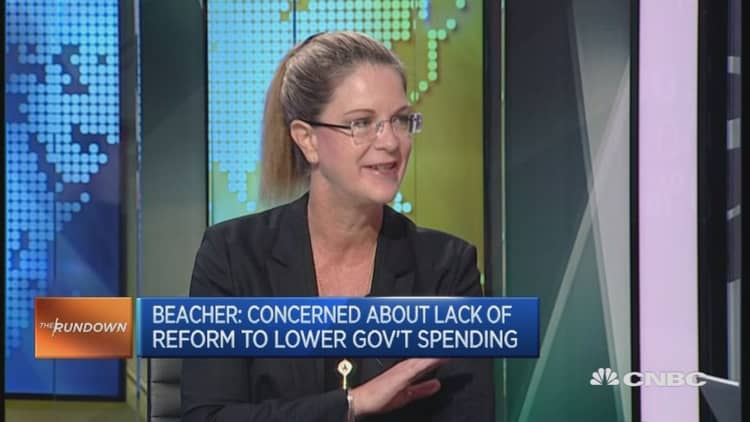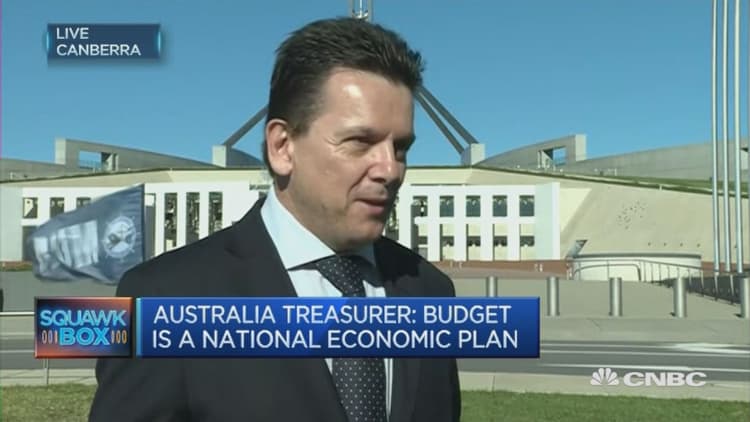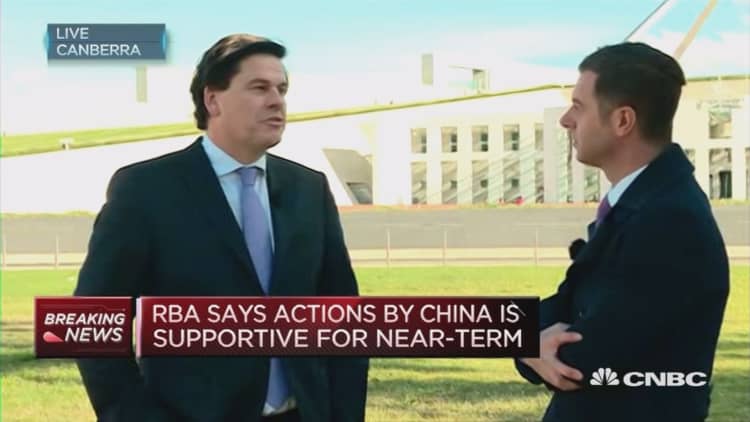


Australia on Tuesday unveiled a budget package high on new taxes changes but low on measures to boost sagging growth, prompting some skepticism among analysts.
The federal budget was particularly tricky this time, coming just days before Australian Prime Minister Malcolm Turbull is expected to call an election.
Australia's economy has cooled in recent years as the country transitions away from supplying commodities to the world's factories. Soft inflation has pushed up real interest rates and raised doubts over spending by companies. In response, Australia's central bank Tuesday cut interest rates to an all-time low.
The government is trying to boost the economy through fiscal measures – the budget includes lower tax rates for all businesses in the next 10 years, higher taxes that shift offshore and cutting tax concessions for the wealthiest Australians.
Some experts, however, feel the measures fall short.
"There's lots of tax here (but) there's no expenditure…you can't tax your way into prosperity," said TD Securities' head of Asia-Pacific Research, Annette Beacher, who calls the plan "a complete dud of a budget".
The budget deficit is estimated at A$37.1 billion ($27.7 billion), or 2.2 percent of the country's gross domestic product (GDP) in 2016/17.
The deficit is expected to narrow to A$6.0 billion by 2019/20, with the aim of returning to surplus by 2020/21.
The government needed to draw up a plan to return to surpluses to maintain its top notch triple-A credit rating.
"The Treasurer did come up with a package of new tax and spending measures that offset a lot of the deterioration in the fiscal outlook caused by the weaker outlook for nominal GDP growth. In fact, it actually reduces the cash deficit by A$1.7 billion over the next four financial years. That's what kept the ratings agencies happy," wrote Capital Economics economists in a note.
"(But) this doesn't represent an absolute fiscal stimulus. Instead, it's an easing of the size of the fiscal drag that was previously forecast. Even so, the Treasurer has effectively boosted the level of GDP by 0.2 percent."
Australian independent senator Nick Xenophon told CNBC's "Squawk Box" that there is the lack of a concrete plan to deal with the manufacturing industry's decline.
"The government wants this budget to be dull; this is very pretty much a treading water budget. The government doesn't want to make waves, it doesn't want to be swamped by an angry electorate… I think that this is a budget that the government wants the electorate to forget about in a week's time. They want to focus on the election campaign, they want this to be forgettable."




